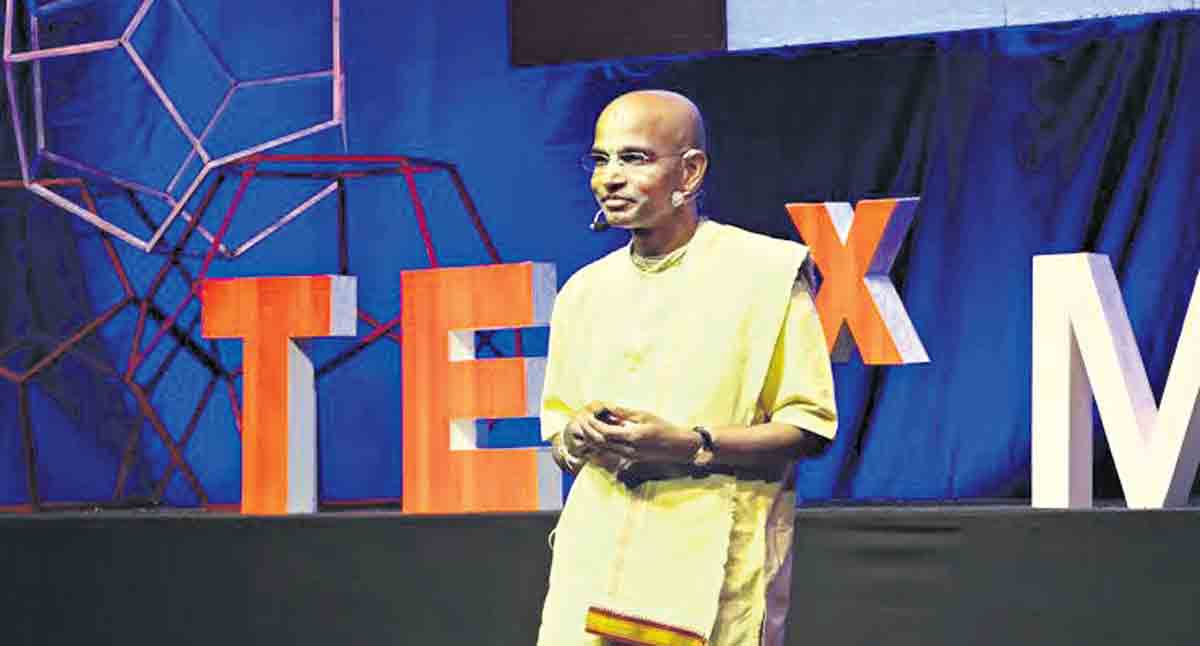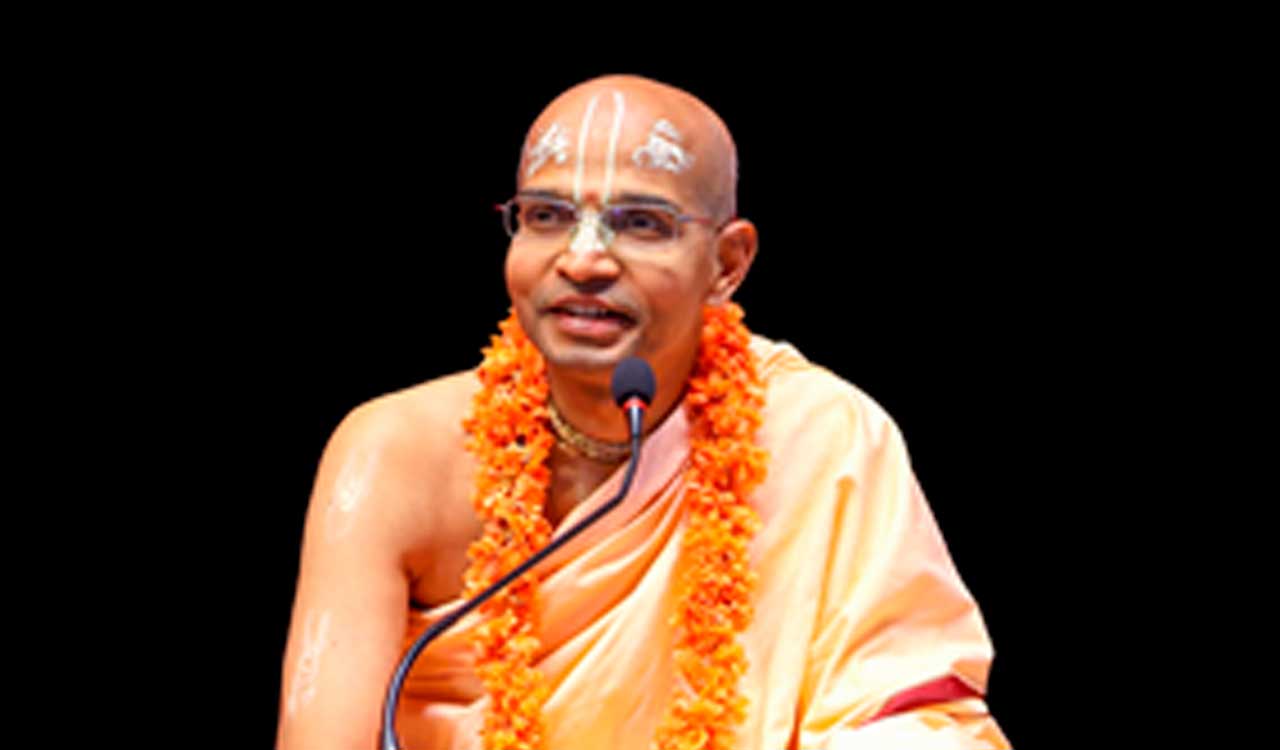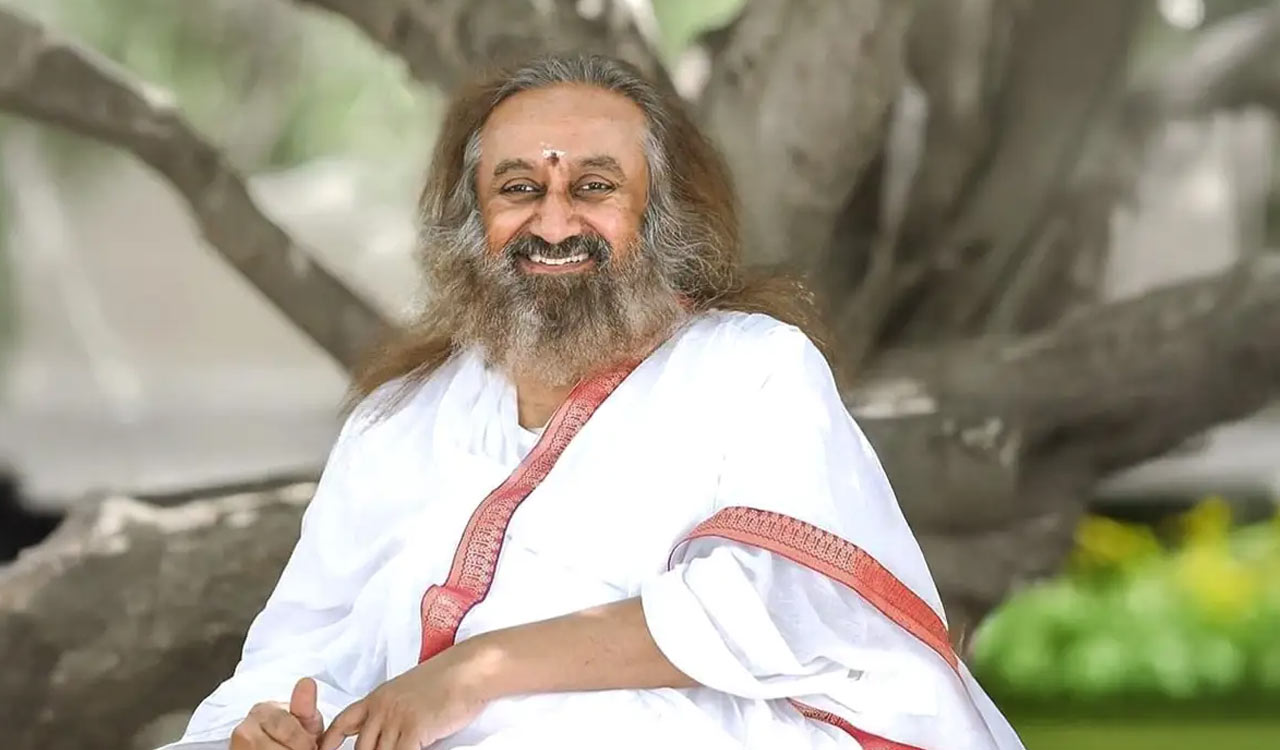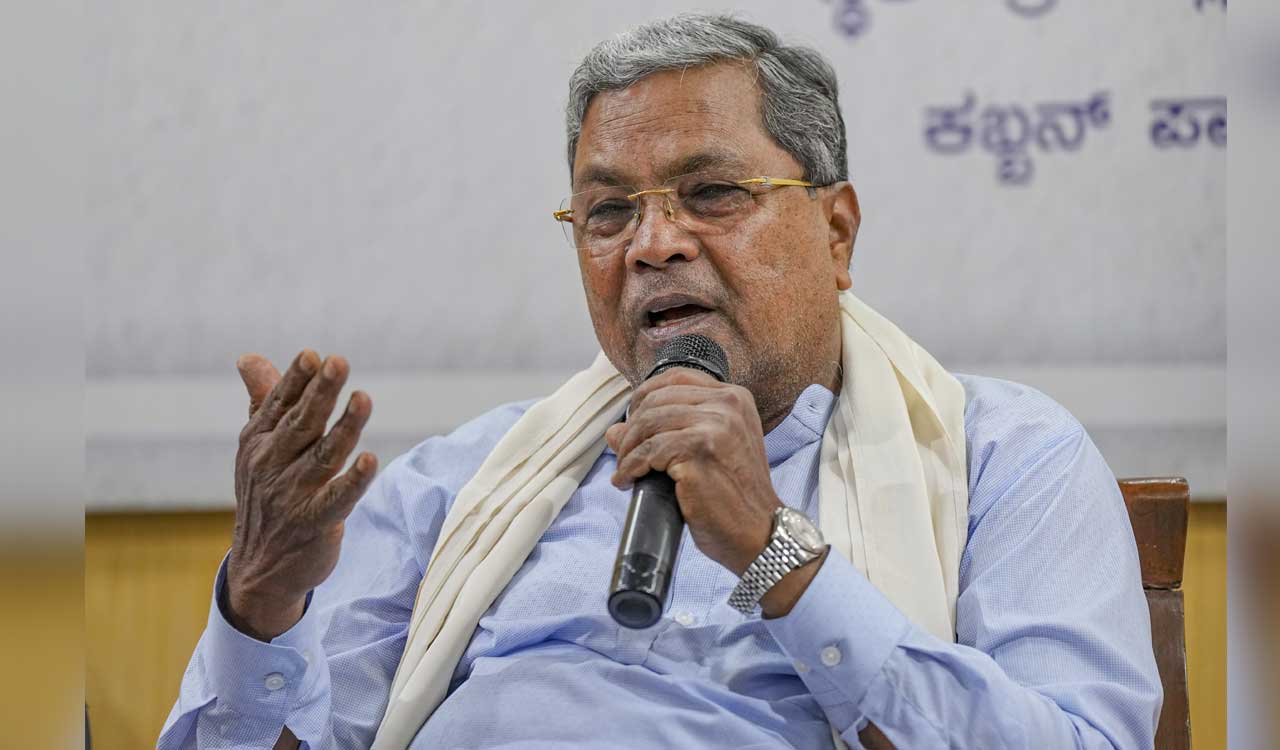Teachings of Lord Krishna hold relevance to this day
By Sri Satya Gaura Chandra Dasa Prabhu There is a persisting pandemic, uncertainty of livelihoods, tough competition, and a lot of anxiety about what’s happening or going to happen. It is also a fact that some of us are reaching a point of emotional breakdown. But, still, it is not a surprise. These things do […]

By Sri Satya Gaura Chandra Dasa Prabhu
There is a persisting pandemic, uncertainty of livelihoods, tough competition, and a lot of anxiety about what’s happening or going to happen. It is also a fact that some of us are reaching a point of emotional breakdown. But, still, it is not a surprise. These things do happen, have happened in the past and will happen in the future.
Five thousand years ago, a similar emotional breakdown of a mighty warrior, Arjuna, was described in Bhagavad Gita. Arjuna was the topmost warrior and knows all astras including Brahmastra and Pasupatastra. An accomplished warrior like Arjuna too went into an emotional breakdown on the battlefield of Kurukshetra.
When Arjuna assessed the situation on the battlefield, which is described in the first chapter of Bhagavad Gita, he came under emotional stress so much that his body shivered and trembled. He kept aside his bow and arrow out of anxiety and tears appeared in his eyes. He decided not to fight and started giving arguments and foresaw only a bleak future.
Sometimes the current situation can bring such anxiety and stress that one may want to run away from his duties and retire to some village.
Lord Krishna, who was present on the battlefield and acted as Arjuna’s chariot driver, considered Arjuna’s weakness unacceptable. He called Arjuna’s decision as:
anārya-juṣṭam asvargyam
akīrti-karam arjuna (BG 2.2)
(The Supreme Person [Bhagavān] said: My dear Arjuna, how have these impurities come upon you? They are not at all befitting a man who knows the progressive values of life. They do not lead to higher planets, but to infamy.)
Then a conversation ensued between the Lord and His great friend warrior Arjuna. Lord Krishna’s teachings during this conversation are famously known as Bhagavad Gita. After hearing Bhagavad Gita, Arjuna stood up with confidence, took his bow and arrows again and fought valiantly in the battle to ultimately win it.
What actually inspired Arjuna to do his duty? Lord Krishna didn’t speak about weapons, mantras, skills to fight, how to kill enemies, etc. All these things were already known to Arjuna. Krishna spoke about the true nature of life and changed the perceptions of Arjuna.
Krishna revealed in Bhagavad Gita that all living beings are spiritual in nature but encaged inside material bodies. He revealed that our life is spiritual:
dehino ‘smin yathā dehe
kaumāraṁ yauvanaṁ jarā
tathā dehāntara-prāptir
dhīras tatra na muhyati
(As the embodied soul continually passes in this body, from boyhood to youth to old age, the soul similarly passes into another body at death. The self-realised soul is not bewildered by such a change.)
Focusing on material body, skills and expertise in material realm is not sufficient for life. As spirit souls, we are hankering for higher pleasures, knowledge and existence. We all want permanent existence and uninterrupted pleasures. However, this world doesn’t offer those wants.
After reading Bhagavad Gita, one should come to the above conclusion as reached by Arjuna. As soon as Arjuna understood his real nature and the nature of all the enemies before him, his perception changed. He fought the war by surrendering to Lord Krishna who was present right in front of him.
At the end of hearing Bhagavad Gita, Arjuna comes to this conclusion:
arjuna uvāca
naṣṭo mohaḥ smṛtir labdhā
tvat-prasādān mayācyuta
sthito ‘smi gata-sandehaḥ
kariṣye vacanaṁ tava
(Arjuna said, My dear Krishna, O infallible one, my illusion is now gone. I have regained my memory by your mercy, and I am now firm and free from doubt and am prepared to act according to your instructions)
One can note that Bhagavad Gita doesn’t encourage retiring from life. It encourages one to fight in his life by surrendering to Krishna. By acting according to the instructions of the Acharya Prabhupada and Krishna as depicted in Bhagavad Gita, one can be free from all illusions and will be prepared to act in his life perfectly. This is the way to come out of hopelessness and desperation in life.
Is Bhagavad Gita relavant today?
People ask “Swamiji, Bhagavad Gita was spoken 5,000 years ago suitable to the place, circumstances and time of those days. Our current lives are completely different from those lives. Do you think that the Bhagavad Gita is still relevant?”
There certainly are striking changes in situations in comparison to those times. But when we look at Arjuna’s emotional breakdown and the current situation, we see that internal world of a person has not transformed. Despite rapid strides externally, we have the same fragilities as Arjuna. In fact, the stress and anxiety of the current society has reached pandemic levels.
Under the current circumstances, Bhagavad-Gita is more relevant. Those days, Bhagavad Gita helped one Arjuna to come out of internal weaknesses. Now, it can help millions to come out of their anxieties of life.
On the occasion of the Gita jayanthi, everyone should take ” Bhagavad Gita as it is” and mould their life in such a way that it becomes a way of life towards peace and prosperity. Hare Krishna!
— Sri Satya Gaura Chandra Dasa Prabhu (M.Tech, IIT, Chennai)
President, Hare Krishna Movement, Hyderabad and
Regional President, the Akshaya Patra Foundation (AP & Telangana)
Now you can get handpicked stories from Telangana Today on Telegram everyday. Click the link to subscribe.
Click to follow Telangana Today Facebook page and Twitter .
Related News
-
Citizens flag alleged illegal spa rackets across Hyderabad
4 mins ago -
Sajjanar warns of strict action ahead of Holi celebrations
14 mins ago -
Kulsumpura traffic police held road safety drive in Nanal Nagar
24 mins ago -
Hyderabad to host 12th edition of Panacea – Natural Products Expo from March 6
34 mins ago -
Hyderabad police warn against fake videos on Lok Adalat traffic fine waiver
39 mins ago -
Kerala CM Pinarayi Vijayan terms Telangana govt’s Khammam demolitions as ‘bulldozer raj’
43 mins ago -
Country Club unveils ‘Holi Pichkari Car’ ahead of Rang Basant 2026
49 mins ago -
Two container hospitals set up in remote agency villages in Khammam
51 mins ago




